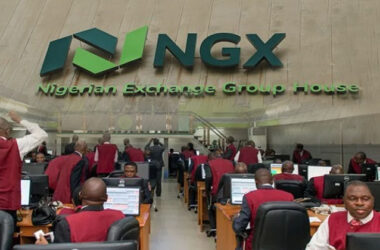In recent years, the landscape of sports in Nigeria has evolved from a mere pastime into a thriving business sector, fueled by passionate fans, emerging talents, and increasing investment. With a population of over 200 million people, Nigeria is not just a powerhouse in football but is rapidly diversifying into various sports, including basketball, athletics, and even esports. This article delves into the multifaceted business of sports in Nigeria, exploring its current state, challenges, and future prospects.
The Growth of Sports Sponsorship and Marketing
As Nigeria’s sports scene gains momentum, so does the interest from corporate sponsors. Brands are increasingly recognizing the value of associating with sports teams and athletes, tapping into the fervent fan base that follows local leagues and national teams. Major companies like MTN, Glo, and Dangote have stepped up their sponsorship efforts, contributing to the financial sustainability of sports organizations.
In particular, the Nigeria Professional Football League (NPFL) has attracted sponsorship deals that enhance its visibility. The engagement of brands in sports marketing is also expanding to include athlete endorsements, where star players like Wilfred Ndidi and Victor Osimhen serve as ambassadors for various products, further bridging the gap between sports and commerce.
The Role of Technology in Sports Business
Technology is reshaping the business of sports in Nigeria, from ticketing systems to fan engagement platforms. The rise of digital media has made it easier for teams to connect with their fans, offering live updates, behind-the-scenes content, and interactive experiences. Sports apps and online platforms are emerging, providing fans with direct access to merchandise, ticket sales, and exclusive content.
Moreover, the growing popularity of esports is captivating the younger generation, leading to investments in gaming leagues and tournaments. Nigerian gamers are beginning to make their mark internationally, creating a new avenue for revenue generation and audience engagement.
Challenges Facing the Sports Industry
Despite the promising growth, the sports business in Nigeria faces several challenges. One significant hurdle is inadequate infrastructure. Many sporting facilities are outdated or poorly maintained, limiting the ability of athletes to perform at their best and discouraging international events from taking place in the country. Furthermore, the lack of proper funding and support for grassroots sports hampers the development of young talents.
Corruption and mismanagement within sports federations also pose serious obstacles. Allegations of embezzlement and lack of transparency have undermined the integrity of various sports organizations, leading to diminished trust among sponsors and fans alike.
The Future of Sports Business in Nigeria
The future of sports business in Nigeria is bright, provided that stakeholders come together to address existing challenges. Investment in sports infrastructure is crucial for creating an environment conducive to training and competition. The government, alongside private investors, must prioritize the development of modern stadiums, training facilities, and youth academies.
Additionally, fostering a culture of transparency and accountability within sports organizations can help restore trust and attract more sponsors. With the right policies and support, Nigeria can establish itself as a leading sports hub in Africa.
As the country prepares to host more international sporting events, including the African Cup of Nations and potential Olympic qualifiers, the opportunities for growth and investment will only increase. The synergy between sports and business is set to deepen, unlocking new avenues for entrepreneurship, job creation, and national pride.
Beyond the field, the business of sports in Nigeria is evolving into a significant driver of economic growth and social cohesion. With passionate fans, burgeoning talent, and increasing investment, Nigeria is on the cusp of realizing its potential as a major player in the global sports arena. As stakeholders work to overcome challenges, the future of sports business in Nigeria looks promising, offering a wealth of opportunities for all involved.







